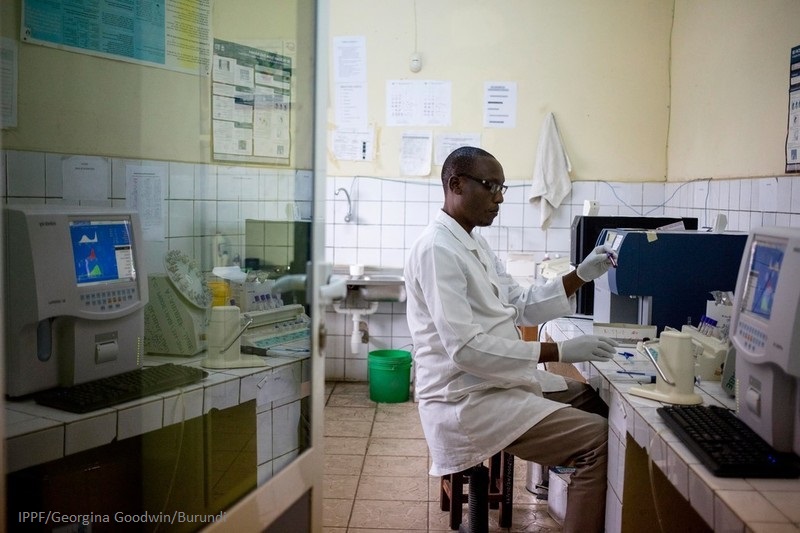Every year on 4 February, IPPF Africa Region joins the world in marking the World Cancer Day. This is a day set aside to draw attention to the cancer disease and encourage action towards a future free of cancer. This year’s theme is ‘I Am and I Will’, which encourages personal initiative to take the necessary action to combat cancer.
Cancer is one of the leading causes of morbidity and mortality worldwide, with approximately 70% of deaths from the disease occurring in low-and middle-income countries, according to the World Health Organization.
As a fast-rising major public health concern in many developing countries, cancer leaves behind devastating effects on families, communities and economies. Yet, if detected and treated early, many cancer deaths can be averted. Early diagnosis however remains a great challenge in sub-Saharan Africa. In addition to lack of awareness about cancer risk factors, many health systems across the continent are not fully capable of meeting the demands of early diagnosis, testing, treatment and management.
At IPPF Africa Region, we complement government efforts in addressing the health challenges in sub-Saharan Africa. Through our Member Associations (MAs) in 39 countries, we work with different partners: both in the public and private sectors in providing sexual and reproductive health services. One of our focus areas is reproductive health cancers, including breast cancer, cervical cancer, ovarian cancer and prostate cancer. Through our static clinics, mobile clinics and other outreach strategies, our MAs continually create awareness about cancer, by providing information on prevention, risk factors and where they can access related services. Our MAs also offer cancer-related services including visual inspection with acetic acid (VIA) for cervical cancer screening, HPV testing, mammogram screening for breast cancer, and referrals for surgery, radiotherapy, chemotherapy and further management.
Between 2017 – 2019, IPPF Africa Region saw an estimated 4,278,029 women tested for cervical cancer. A further estimated 2,398,576 people were tested for breast cancer. Through our clinics, an estimated 97,496 people underwent surgical treatment in the same period.
Our contribution to such cancer data is important for the development of cancer control programmes and creation of cancer policies. We are also involved in cancer surveillance and research activities that inform the development of reproductive cancer drugs and vaccines.
Our advocacy efforts include calling on African leaders to prioritize the health agenda in their countries and follow up on their commitment to various health instruments such as the Abuja Declaration. The Abuja declaration requires African countries to commit at least 15% of their annual budgets to improving the health sector.
The health of any country begins with an individual so on this day, we urge all of us to make a personal commitment to take various actions that will reduce the cancer burden in our countries. It is our responsibility to ensure that we go for regular screening and testing, avoid risk factors that predispose one to cancer, advocate for cancer prevention, treatment and management, including speaking out in support of research, as well as advocate for the implementation of international commitments to health care in our countries. What we do today matters towards the realization of a cancer-free future.














